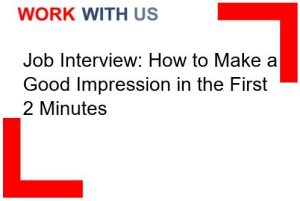In the realm of professional life, it is not uncommon to find oneself in a job that fails to ignite passion or enthusiasm. Whether due to financial constraints, limited opportunities, or simply a temporary situation, many individuals find themselves doing a job they don’t particularly enjoy. While this predicament may seem disheartening, it is essential to remember that every experience can be valuable and contribute to personal growth. With this in mind, here are five tips to help navigate the challenges of doing a job one doesn’t like.
Firstly, it is crucial to maintain a positive mindset. Attitude plays a significant role in how one perceives their circumstances and can greatly impact overall job satisfaction. By focusing on the positive aspects of the job, such as the skills being developed or the relationships being formed, individuals can find a renewed sense of purpose and motivation. Cultivating a positive mindset also involves reframing negative thoughts and seeking out opportunities for growth within the role. This shift in perspective can make the job more bearable and even lead to unexpected benefits.
Secondly, finding meaning in the work being done can make a significant difference. Even in jobs that seem mundane or unfulfilling, there are often ways to connect the tasks to a larger purpose. By understanding how their role contributes to the organization’s goals or impacts others positively, individuals can find a sense of meaning and fulfillment. This might involve seeking feedback from colleagues or supervisors, exploring success stories related to the job, or identifying personal values that align with the work being done. By finding purpose in the job, individuals can derive a sense of satisfaction and motivation to excel.
Thirdly, it is essential to focus on personal growth and skill development. Even if the job itself is not ideal, there are always opportunities to learn and acquire new skills. By actively seeking out challenges and taking on additional responsibilities, individuals can expand their knowledge and expertise. This not only enhances their employability but also provides a sense of progress and accomplishment. Additionally, individuals can explore external learning opportunities, such as online courses or workshops, to further develop skills that may be transferable to future roles. By investing in personal growth, individuals can make the most of their current situation and increase their chances of finding a more fulfilling job in the future.
Fourthly, maintaining a healthy work-life balance is crucial when dealing with a job one doesn’t like. It is easy to let negative feelings from work spill over into personal life, leading to increased stress and dissatisfaction. Therefore, it is important to set boundaries and prioritize self-care. Engaging in activities outside of work that bring joy and fulfillment can help counterbalance the negative aspects of the job. This might involve pursuing hobbies, spending time with loved ones, or engaging in physical exercise. By maintaining a healthy work-life balance, individuals can protect their well-being and prevent burnout.
Lastly, it can be helpful to seek support from others. Talking to trusted friends, family members, or mentors about the challenges faced in the job can provide a fresh perspective and valuable advice. They may offer insights or suggestions that can help navigate difficult situations or identify alternative paths. Additionally, seeking out professional networks or online communities related to the industry can provide a sense of camaraderie and support. By connecting with others who have faced similar challenges, individuals can gain encouragement and learn from their experiences.
In conclusion, doing a job one doesn’t like can be a challenging experience, but it is not without its merits. By maintaining a positive mindset, finding meaning in the work, focusing on personal growth, maintaining a healthy work-life balance, and seeking support, individuals can navigate the difficulties and make the most of their current situation. Ultimately, every job offers opportunities for growth and learning, and by embracing these tips, individuals can turn a seemingly undesirable job into a stepping stone towards a more fulfilling career.
Finding motivation: 5 strategies to stay engaged in a job you don’t like
In today’s fast-paced and competitive world, it’s not uncommon to find oneself in a job that lacks fulfillment or passion. While it may be tempting to throw in the towel and search for greener pastures, sometimes circumstances require us to stay in a job we don’t particularly enjoy. However, all hope is not lost! There are several strategies one can employ to stay engaged and motivated, even in a less-than-ideal work environment.
Seek Out Meaningful Connections
One effective strategy to find motivation in a job you don’t like is to cultivate meaningful connections with your colleagues. Building positive relationships with coworkers can create a supportive and enjoyable work atmosphere, making the job more bearable. Engaging in open and honest communication, collaborating on projects, and offering assistance when needed can foster a sense of camaraderie and make the workday more pleasant. By focusing on building connections, you can find motivation in the relationships you form, rather than solely relying on the nature of the job itself.
Set Personal Goals
Another strategy to stay engaged in a job you don’t like is to set personal goals that align with your long-term aspirations. While the job may not be your dream career, it can serve as a stepping stone towards your ultimate goals. By identifying specific objectives and milestones, you can create a sense of purpose and direction within your current role. Whether it’s acquiring new skills, completing a challenging project, or seeking opportunities for growth, setting personal goals can provide a sense of accomplishment and motivation, even in an unfulfilling job.
Find Meaning in the Mundane
Sometimes, finding motivation in a job you don’t like requires a shift in perspective. Instead of focusing on the aspects you dislike, try to find meaning in the mundane tasks. Every job, no matter how unexciting, contributes to a larger purpose. By understanding the impact your work has on others or the organization as a whole, you can find a sense of fulfillment. For example, if you’re working in customer service, remind yourself that you have the power to make someone’s day better through your interactions. By reframing your mindset and finding purpose in the seemingly insignificant tasks, you can stay engaged and motivated.
Seek Out Learning Opportunities
Continual learning and personal growth can be powerful motivators, even in a job you don’t like. Look for opportunities to expand your knowledge and skills within your current role. Attend workshops, seminars, or conferences related to your field, or take advantage of online courses and resources. By investing in your professional development, you not only enhance your skill set but also open doors to new possibilities. The pursuit of knowledge can provide a sense of purpose and motivation, as you strive to become the best version of yourself, regardless of your current job situation.
Create a Work-Life Balance
Maintaining a healthy work-life balance is crucial for overall well-being and motivation, especially in a job you don’t enjoy. Dedicate time to activities and hobbies outside of work that bring you joy and fulfillment. Engaging in physical exercise, pursuing creative outlets, spending time with loved ones, or simply taking time for self-care can recharge your batteries and provide a much-needed break from the daily grind. By creating a balance between work and personal life, you can find motivation and perspective, allowing you to approach your job with renewed energy and enthusiasm.
In conclusion, finding motivation in a job you don’t like can be challenging, but it’s not impossible. By seeking meaningful connections, setting personal goals, finding purpose in the mundane, seeking out learning opportunities, and creating a work-life balance, you can stay engaged and motivated, even in less-than-ideal circumstances. Remember, every job experience offers valuable lessons and opportunities for growth. By employing these strategies, you can make the most of your current situation and pave the way for a brighter professional future.
Building resilience: how to maintain mental well-being in a job you don’t enjoy
In today’s fast-paced and competitive world, many individuals find themselves stuck in jobs that they don’t enjoy. Whether it’s due to financial obligations, lack of alternative opportunities, or simply a temporary phase, being in a job that doesn’t bring fulfillment can take a toll on one’s mental well-being. However, it is possible to build resilience and maintain a positive mindset even in such circumstances. By adopting certain strategies and focusing on personal growth, individuals can navigate through the challenges and maintain their mental well-being.
Recognizing and accepting the situation
The first step towards maintaining mental well-being in a job one doesn’t enjoy is to recognize and accept the situation. It’s important to acknowledge that not every job will be a perfect fit and that it’s okay to feel unhappy or unfulfilled. By accepting the reality, individuals can start to shift their mindset and focus on finding ways to cope and improve their situation.
Finding meaning and purpose outside of work
While a job may not bring fulfillment, it’s crucial to find meaning and purpose outside of work. Engaging in hobbies, volunteering, or pursuing personal interests can provide a sense of accomplishment and satisfaction. By dedicating time and energy to activities that bring joy and purpose, individuals can create a balance in their lives and reduce the negative impact of an unfulfilling job.
Developing a support network
Building a strong support network is essential for maintaining mental well-being in any situation. Surrounding oneself with positive and supportive individuals can provide a sense of belonging and encouragement. Seeking out like-minded individuals, joining professional networks, or participating in community groups can help individuals find support and guidance. Sharing experiences and challenges with others who may be going through similar situations can be incredibly empowering and provide valuable insights.
Setting realistic goals and focusing on personal growth
Even in a job one doesn’t enjoy, setting realistic goals and focusing on personal growth can be a source of motivation and resilience. By identifying areas for improvement and working towards specific objectives, individuals can regain a sense of control and purpose. This could involve acquiring new skills, taking on additional responsibilities, or seeking out opportunities for professional development. By investing in personal growth, individuals can enhance their self-esteem and open doors to new possibilities.
Practicing self-care and stress management
In a job that doesn’t bring fulfillment, it’s crucial to prioritize self-care and stress management. Engaging in activities that promote relaxation and well-being, such as exercise, meditation, or spending time in nature, can help individuals cope with the challenges they face at work. Additionally, setting boundaries and learning to say no when necessary can prevent burnout and maintain a healthy work-life balance. Taking care of one’s physical and mental health is essential for building resilience and maintaining overall well-being.
Exploring alternative career paths
While building resilience and maintaining mental well-being in an unfulfilling job is important, it’s also crucial to explore alternative career paths. This could involve researching new industries, networking with professionals in different fields, or seeking guidance from career counselors. By actively exploring options and taking steps towards a more fulfilling career, individuals can regain a sense of hope and motivation. It’s never too late to make a change and pursue a career that aligns with one’s passions and values.
In conclusion, maintaining mental well-being in a job one doesn’t enjoy requires resilience, self-reflection, and a proactive approach. By recognizing the situation, finding meaning outside of work, building a support network, setting goals, practicing self-care, and exploring alternative career paths, individuals can navigate through the challenges and maintain their mental well-being. It’s important to remember that a job does not define one’s worth or happiness, and by focusing on personal growth and well-being, individuals can create a fulfilling life beyond their current employment.
Career exploration: 5 steps to discovering your passion and transitioning from a job you dislike
Career Exploration: Unveiling Your Passion and Transitioning from a Disliked Job
Embarking on a journey of career exploration can be both exhilarating and daunting. Many individuals find themselves stuck in jobs they dislike, yearning for a change that aligns with their true passions. However, discovering one’s passion and transitioning to a more fulfilling career requires careful introspection and a systematic approach. By following these five steps, individuals can unlock their true potential and find the path that leads to professional satisfaction.
Step 1: Self-Reflection and Assessment
The first step towards career exploration involves deep self-reflection and assessment. It is crucial to understand one’s strengths, weaknesses, values, and interests. By taking stock of personal skills and preferences, individuals can gain clarity on what truly drives them. This process may involve self-assessment tools, seeking feedback from mentors or trusted individuals, and reflecting on past experiences that brought joy and fulfillment. Through this introspection, one can identify potential career paths that align with their passions.
Step 2: Research and Exploration
Once individuals have gained insight into their own aspirations, it is time to embark on a journey of research and exploration. This step involves delving into various industries, job roles, and potential career paths. By conducting thorough research, individuals can gather information about the skills required, job prospects, and work environments associated with different fields. Exploring online resources, attending career fairs, and networking with professionals in desired industries can provide valuable insights and help individuals narrow down their options.
Step 3: Skill Development and Education
After identifying potential career paths, individuals should focus on acquiring the necessary skills and knowledge to excel in their chosen field. This may involve pursuing further education, enrolling in relevant courses, or seeking out professional development opportunities. By investing in skill development, individuals can enhance their marketability and increase their chances of success in their desired career. Additionally, gaining practical experience through internships or volunteering can provide valuable insights and help individuals validate their career choices.
Step 4: Networking and Mentorship
Building a strong network and seeking mentorship is a crucial step in career exploration. Connecting with professionals in desired industries can provide valuable guidance, insights, and potential job opportunities. Attending industry events, joining professional associations, and utilizing online networking platforms can help individuals expand their network. Seeking mentorship from experienced professionals can provide invaluable advice and support throughout the career transition process. By leveraging these connections, individuals can gain a deeper understanding of their chosen field and potentially secure job opportunities.
Step 5: Taking the Leap and Transitioning
The final step in career exploration involves taking the leap and transitioning from a disliked job to a more fulfilling career. This can be a challenging and courageous decision, but with proper planning and preparation, it can lead to long-term professional satisfaction. Individuals should create a strategic career transition plan, which may involve updating their resume, preparing for interviews, and leveraging their network to find job opportunities. It is important to remain patient and persistent during this phase, as transitioning to a new career may take time. By staying focused on their passion and maintaining a positive mindset, individuals can successfully navigate this transition and embark on a fulfilling career journey.
In conclusion, career exploration is a transformative process that requires self-reflection, research, skill development, networking, and the courage to transition. By following these five steps, individuals can uncover their true passions and transition from a disliked job to a career that brings them joy and fulfillment. Remember, the journey may not always be easy, but with determination and perseverance, one can find professional success and personal satisfaction.
Effective communication: navigating difficult work relationships in a job you’re not fond of
Effective communication is crucial in navigating difficult work relationships, especially in a job that one is not fond of. When faced with challenging colleagues or a less-than-ideal work environment, it becomes even more important to communicate effectively to maintain a positive and productive atmosphere. By employing various strategies and techniques, individuals can effectively navigate these difficult work relationships and minimize the impact on their overall job satisfaction.
Understanding the Importance of Effective Communication
Effective communication is the cornerstone of any successful relationship, be it personal or professional. In the context of a job one is not fond of, effective communication becomes even more critical. It allows individuals to express their concerns, frustrations, and needs in a constructive manner, fostering understanding and potentially leading to positive changes in the work environment.
Active Listening and Empathy
One of the key elements of effective communication is active listening. By actively listening to their colleagues, individuals can gain a better understanding of their perspectives and concerns. This helps in building empathy, which is essential in navigating difficult work relationships. By putting themselves in the shoes of their colleagues, individuals can better appreciate their challenges and find common ground for collaboration.
Open and Honest Communication
Open and honest communication is vital in addressing issues and resolving conflicts in the workplace. Instead of bottling up frustrations or resorting to passive-aggressive behavior, individuals should express their concerns directly and respectfully. This approach allows for a more transparent and productive dialogue, leading to potential solutions and improvements in the work relationship.
Constructive Feedback and Conflict Resolution
Providing constructive feedback is another crucial aspect of effective communication. When faced with a difficult work relationship, individuals should strive to offer feedback that is specific, actionable, and focused on behavior rather than personal attacks. This helps in addressing the root causes of the issues and finding ways to improve the working dynamic.
Conflict resolution skills are also essential in navigating difficult work relationships. By approaching conflicts with a calm and rational mindset, individuals can work towards finding mutually beneficial solutions. This may involve compromise, active listening, and a willingness to understand the perspectives of others.
Seeking Support and Building a Supportive Network
In challenging work environments, seeking support from colleagues or mentors can be immensely helpful. By confiding in trusted individuals, individuals can gain valuable advice, perspective, and emotional support. Building a supportive network within the workplace can provide a sense of camaraderie and help individuals navigate difficult work relationships more effectively.
The Importance of Emotional Intelligence
Emotional intelligence plays a significant role in effective communication and navigating difficult work relationships. It involves recognizing and managing one’s own emotions, as well as understanding and empathizing with the emotions of others. By developing emotional intelligence, individuals can better regulate their own reactions, respond empathetically to their colleagues, and maintain a positive work environment.
Managing Stress and Self-Care
In a job one is not fond of, stress can often be a constant companion. It is crucial to manage stress effectively to prevent it from negatively impacting work relationships. Engaging in self-care activities such as exercise, mindfulness, and hobbies can help individuals reduce stress levels and maintain a healthy work-life balance. By taking care of their own well-being, individuals can approach difficult work relationships with a clearer and more positive mindset.
Navigating difficult work relationships in a job one is not fond of requires effective communication skills and a proactive approach. By actively listening, practicing empathy, engaging in open and honest communication, providing constructive feedback, and seeking support, individuals can navigate these challenges more effectively. Developing emotional intelligence, managing stress, and prioritizing self-care are also essential in maintaining a positive work environment. Ultimately, effective communication is the key to fostering understanding, resolving conflicts, and improving job satisfaction in challenging work relationships.



